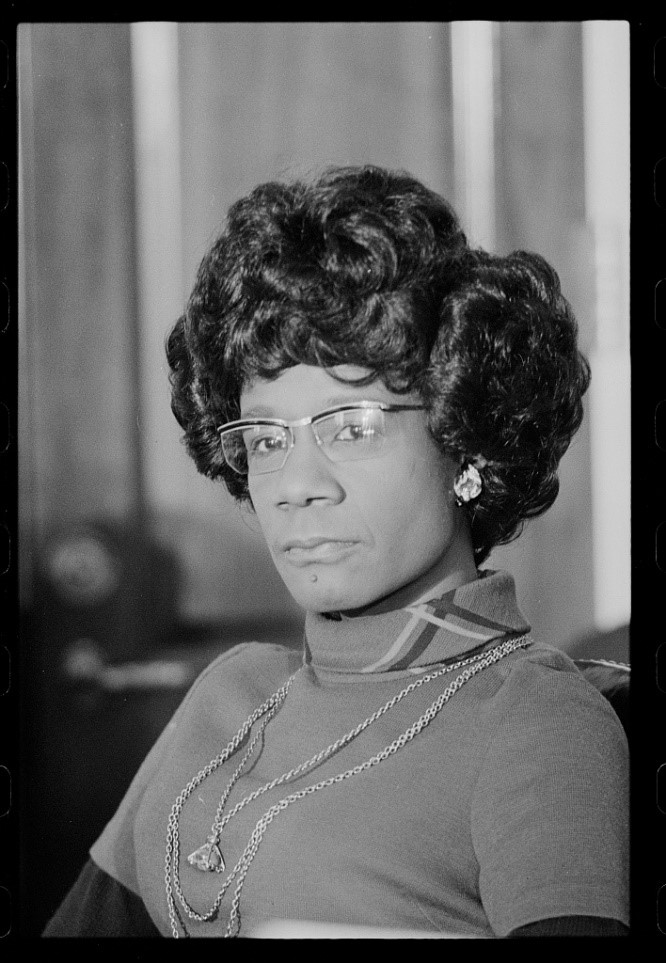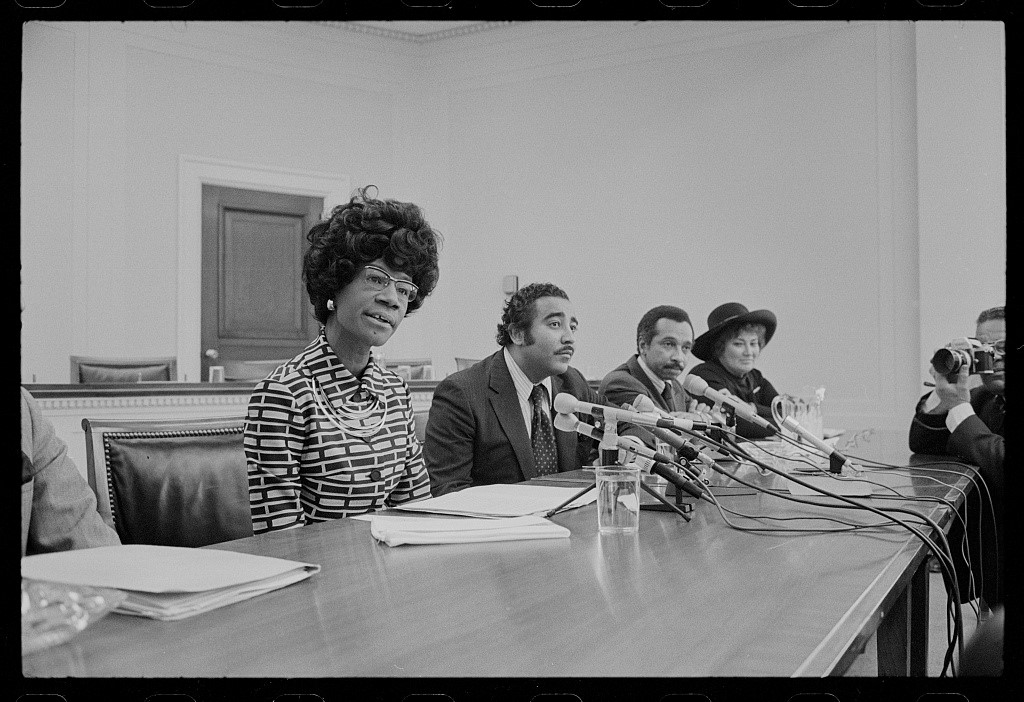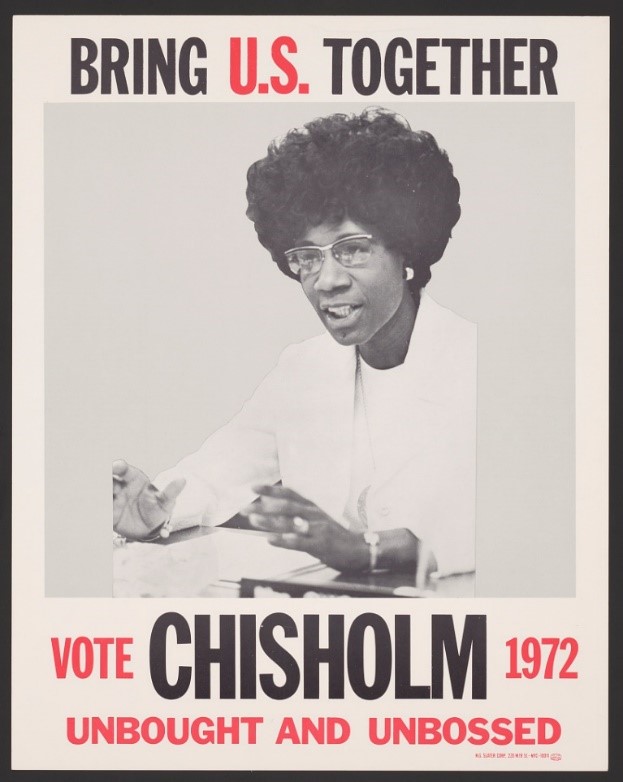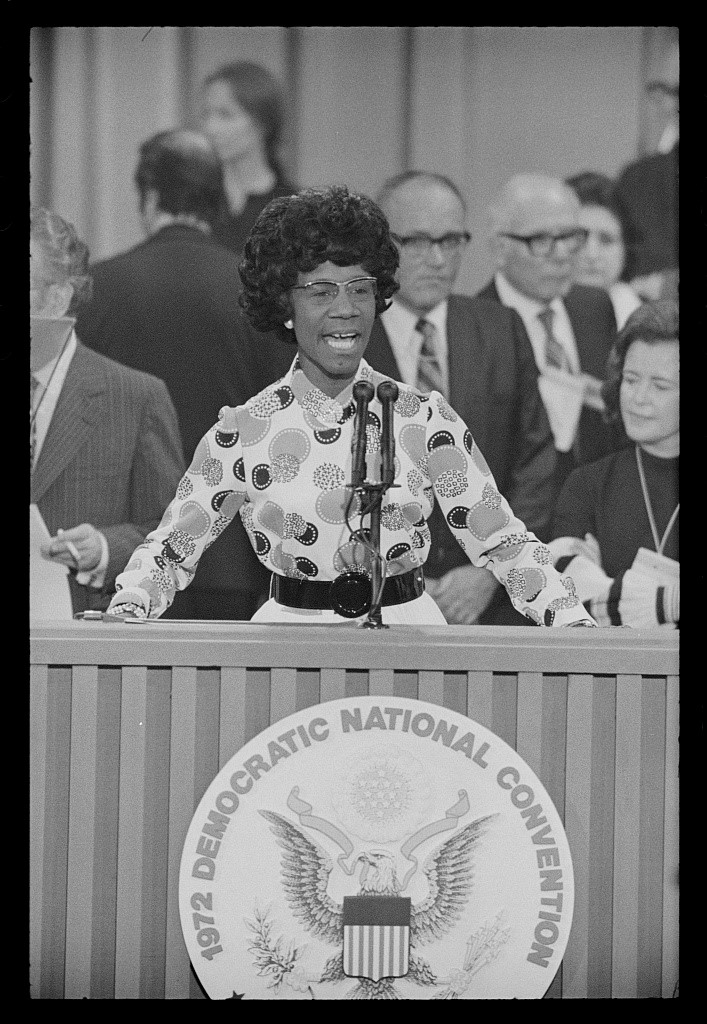Shirley Anita St. Hill Chisholm (1924-2005)
Celebrate Black History Month and the 100th anniversary of the 19th Amendment with stories about women who have used their voices and their votes to better their communities and help shape the United States.
In 1968, Shirley Chisholm made history as the first African-American woman to be elected to Congress. She also broke barriers as the first woman to seek the Democratic presidential nomination in 1972.
Throughout her life, Shirley Chisholm became one of the most influential and iconic policymakers and activists in the United States, and a tireless advocate for women and minority groups.
Shirley Chisholm was born in 1924 in Brooklyn, New York, to immigrant parents from Guyana and Barbados. She graduated cum laude from Brooklyn College in 1946, where she was also a top member of the debate team. After college, she worked as a nursery school teacher and went on to receive a master’s degree from Columbia University in early childhood education. She continued to excel in her field and later served as a consultant to the New York City Division of Day Care.
Shirley Chisholm at the Black Caucus State of the Union event, 1973. Courtesy of the Library of Congress
As her career progressed, Chisholm was also politically active and participated in many groups that sought to combat racial and gender inequality, including the League of Women Voters, the NAACP, the Urban League, and the Democratic Party Club. In 1964, she was elected to the New York State Legislature, making her the second African-American person to do so. Four years later, in 1968, she ran for and was elected to Congress. After her historic win, considered an upset in her district, she aptly declared: “Just wait, there may be some fireworks.”
Chisholm’s time in Congress was one of prolific work and steadfast determination, marked by her slogan “unbought and unbossed.” Nicknamed “Fighting Shirley,” she focused on causes including racial and gender equality, helping the poor, and putting an end to the Vietnam War. During her time in office, she introduced more than 50 pieces of legislation and continued to achieve milestones, including becoming the first Black woman and the second woman ever to serve on the House Rules Committee in 1977. Chisholm was also one of the co-founders of the National Women’s Political Caucus, which sought to broaden women’s political participation.
Congresswoman Shirley Chisholm announces her candidacy for the presidential nomination, January 25, 1972. L-R, Shirley Chisholm, Parren Mitchell, Charles Rangel, Bella Abzug. Courtesy of the Library of Congress.
In 1972, Chisholm trailblazed into yet another region of the political realm when she sought the Democratic Party’s presidential nomination, the first woman to do so. Due to discrimination, numerous obstacles were placed in her way: she received little establishment support, and was blocked from taking part in televised primary debates, only making one speech after seeking legal intervention. And while the nomination ultimately went to George McGovern, Chisholm entered 12 primaries and was able to gain 10 percent of the total vote.
Shirley Chisholm presidential campaign poster, 1972. Courtesy of the Library of Congress.
Shirley Chisholm speaks at the third session of the Democratic National Convention in Miami Beach, July 12, 1972. Courtesy of the Library of Congress.
Chisholm retired from Congress in 1983 but continued to be politically active, co-founding the National Political Congress of Black Women and teaching at Mount Holyoke College.
After a life on the forefront of trailblazing politics, she reflected on her life:
“I’d like them to say that Shirley Chisholm had guts. That’s how I’d like to be remembered.”
Learn more about Shirley Chisholm in her autobiography, "Unbought and Unbossed," available at the Library.



